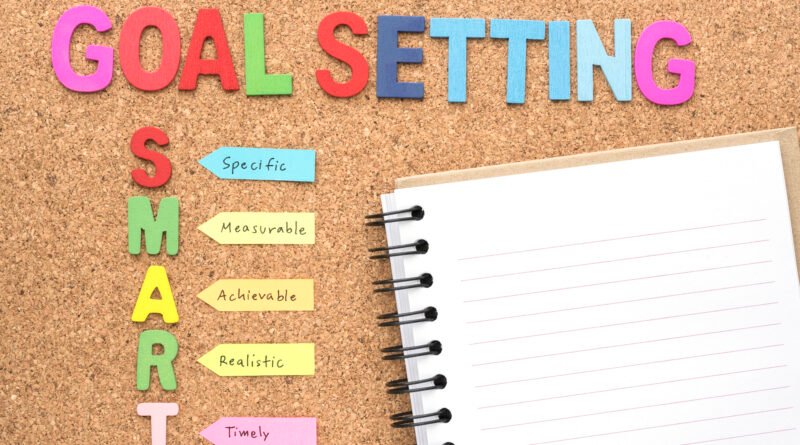Smart Goal Setting for Personal Growth and Success
It plays a significant role across various spheres of life—be it academics, career progression, personal health, or emotional growth. However, when individuals struggle to define or achieve their objectives, it can lead to frustration, procrastination, anxiety, or a dip in self-worth. In such instances, professional counselling—available through platforms like TalktoAngel or centres such as the Psychowellness Center in Janakpuri, Delhi—can be instrumental in guiding individuals back on track.
Understanding Goal Setting
Goal setting refers to the structured process of defining what one wishes to achieve and outlining the steps necessary to accomplish it within a specified time frame. It typically involves:
- Clarifying objectives (e.g., “I aim to run a 5K in 2 months”),
- Devising a plan of action,
- Tracking progress, and
- Adjusting efforts when needed.
Psychological perspectives describe goal setting as a motivational driver that significantly influences human behaviour. According to Locke and Latham’s Goal-Setting Theory, specific and challenging goals, coupled with constructive feedback, result in better outcomes than vague or easy goals.
Why Do People Set Goals?
The reasons behind goal setting vary from internal desires to external pressures. Here are a few common motivators:
1. Inner Drive (Intrinsic Motivation)
Some individuals pursue goals for personal satisfaction or growth. Learning to play the guitar, for instance, is linked to the enjoyment of music.
2. External Rewards (Extrinsic Motivation)
Others are influenced by tangible benefits like recognition, monetary rewards, or professional success. An example would be working towards a job promotion.
3. Desire for Order and Control
Setting goals can provide a structured path in life, which helps reduce uncertainty and fosters a sense of control over the future.
4. Cultural and Social Expectations
Family norms, peer influence, and societal expectations can significantly shape one’s ambitions, especially in areas like education and career.
5. Major Life Events
Life changes such as graduating, getting married, or starting a new job often prompt people to establish new goals and priorities.
Types of Goal Setting
Recognising different kinds of goals allows individuals to plan more effectively. Common categories include:
1. Short-Term Goals
These are attainable within a short time, such as completing a project by the end of the week.
2. Long-Term Goals
These involve extended timeframes, often months or years, like obtaining a professional certification or building a business.
3. Outcome-Oriented Goals
These focus on results (e.g., winning a sports competition), often involving factors beyond personal control.
4. Performance Goals
Such goals aim at improving specific measurable standards, like increasing a test score from 70% to 90%.
5. Process Goals
These emphasise the steps or habits that contribute to a goal. For example, commit to daily journaling for emotional clarity.
6. Personal and Professional Goals
Personal goals may involve relationships or wellness, while professional goals relate to one’s career and skill development.
How Goal Setting Influences Personal Well-Being
Goal setting plays a critical role in shaping one’s emotional and psychological state. When done effectively, it brings clarity, fosters a sense of purpose, and builds confidence.
- Positive Outcomes
- Boosted Motivation and Concentration: Goals help in directing attention and energy toward meaningful activities.
- Increased Confidence: Success in meeting goals enhances belief in one’s abilities.
- Effective Time Use: Well-structured goals improve productivity and reduce time wastage.
- Greater Fulfilment: Emotional health and contentment are intimately related to living a purposeful life.
- Potential Downsides
- Stress and Exhaustion: Ambitious or unclear goals can cause overwhelm and fatigue.
- Lowered Self-Esteem: Repeated failures can make individuals doubt their abilities.
- Avoidance Behaviour: Unclear expectations or fear of not succeeding can lead to procrastination.
- Perfectionist Tendencies: Unrealistically high standards may create performance pressure and fear of inadequacy.
Counselling Support for Goal Setting Challenges
Struggling with goal setting may stem from low motivation, anxiety, fear of failure, or lack of direction. Professional counselling can provide clarity, structure, and psychological tools to overcome these barriers.
Effective Therapeutic Approaches Include:
1. Cognitive Behavioural Therapy (CBT)
Cognitive Behavioural Therapy (CBT) helps individuals reframe negative thinking patterns (e.g., “I can’t do this”) into constructive beliefs, boosting confidence and promoting goal achievement.
2. Motivational Interviewing
Motivational Interviewing person-centred method that helps explore ambivalence and increases internal motivation through reflective conversations.
3. SMART Goal Setting
Therapists guide clients in formulating goals that are:
- Specific
- Measurable
- Achievable
- Relevant
- Time-bound
4. Mindfulness and Acceptance Strategies
Therapies that promote mindfulness can help clients manage emotional roadblocks and stay committed to long-term goals.
Online Counselling: Support Through TalktoAngel
TalktoAngel is an accessible online counselling platform that connects individuals with qualified mental health professionals in India. It provides:
- Specialised Goal-Oriented Sessions: Designed to improve academic focus, workplace productivity, or personal motivation.
- Therapist Matching: Users can select professionals based on their areas of expertise, such as life coaching or career planning.
- Flexible Scheduling: Online sessions suit individuals with mobility issues, tight schedules, or those living in remote locations.
- Private and Confidential: The platform ensures strict data privacy, a key concern for many seeking psychological help.
Therapists on the platform often use evidence-based methods like CBT and coaching strategies to help clients create and follow through on their goals.
In-Person Help: Psychowellness Center, Janakpuri
The Psychowellness Center in Janakpuri, Delhi, is a reputable mental health facility offering both in-person and online services. It features:
- Skilled Professionals: A team of certified clinical psychologists and the best therapists in India, experienced in personal development and academic counselling.
- Tailored Goal-Setting Programs: Individuals receive customised plans that address their unique challenges.
- Youth-Oriented Services: Special programs for students coping with exam stress, career confusion, or motivational issues.
- Workshops and Group Therapy: Community sessions help individuals learn from and motivate each other in group settings.
Conclusion
Setting goals is more than just making plans—it’s a psychological process that influences self-belief, motivation, and quality of life. While effective goal setting can lead to profound personal growth, struggles in this area may signal the need for professional guidance.
Whether through the convenience of TalktoAngel’s online counselling services or the in-depth support at Psychowellness Center—recognized as the best mental health wellness clinic in Delhi—counselling can provide individuals with the tools to overcome obstacles, align actions with values, and lead a purpose-driven life.
References
- Grant, A. M. (2012). Making positive change: A randomised study comparing solution-focused vs. problem-focused coaching questions. Journal of Systemic Therapies, 31(2), 21–35. https://doi.org/10.1521/jsyt.2012.31.2.21
- Locke, E. A., & Latham, G. P. (2002). Building a practically useful theory of goal setting and task motivation: A 35-year odyssey. American Psychologist, 57(9), 705–717. https://doi.org/10.1037/0003-066X.57.9.705
- Ryan, R. M., & Deci, E. L. (2000). Self-determination theory and the facilitation of intrinsic motivation, social development, and well-being. American Psychologist, 55(1), 68–78. https://doi.org/10.1037/0003-066X.55.1.68
- Seligman, M. E. P. (2011). Flourish: A visionary new understanding of happiness and well-being. Free Press.
- Zimmerman, B. J., & Schunk, D. H. (2011). Self-regulated learning and academic achievement: Theoretical perspectives (2nd ed.). Routledge.




